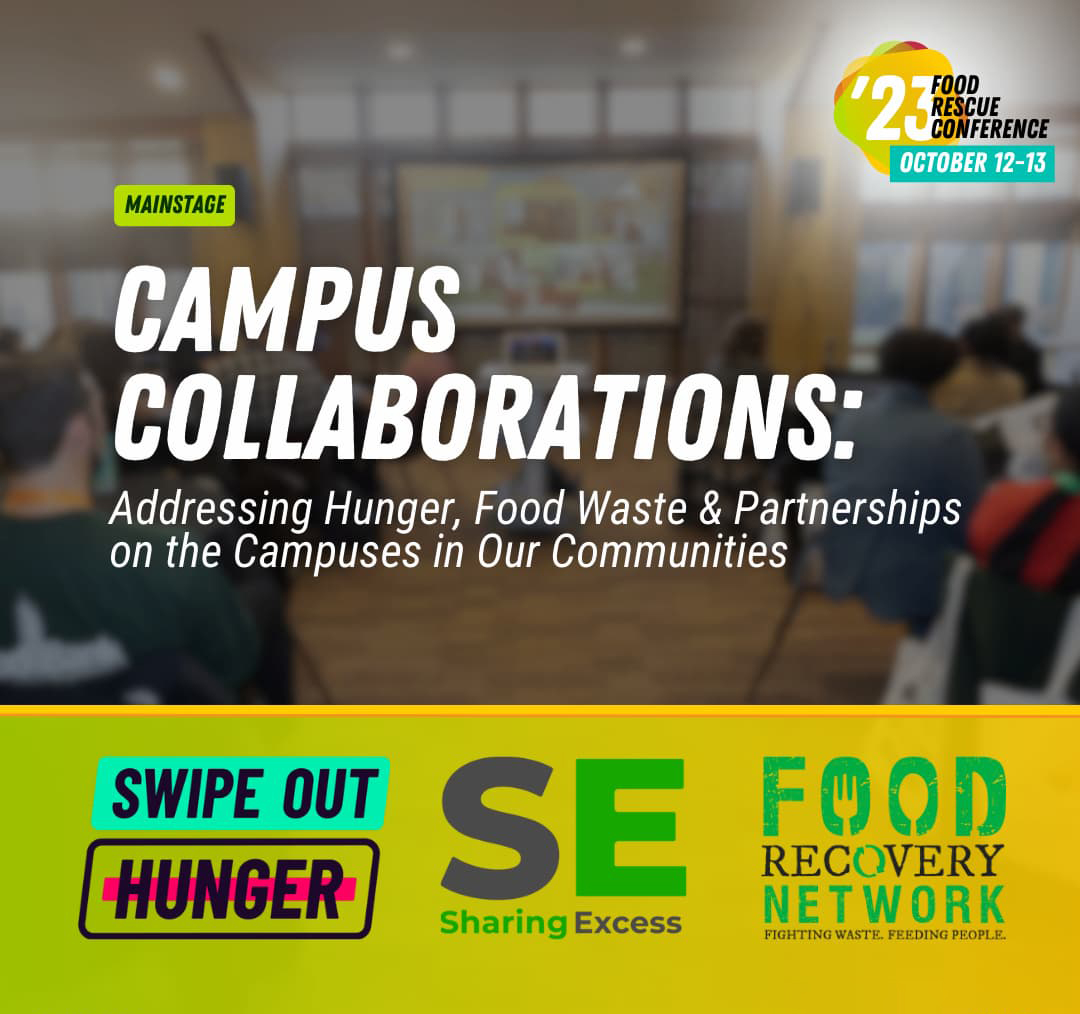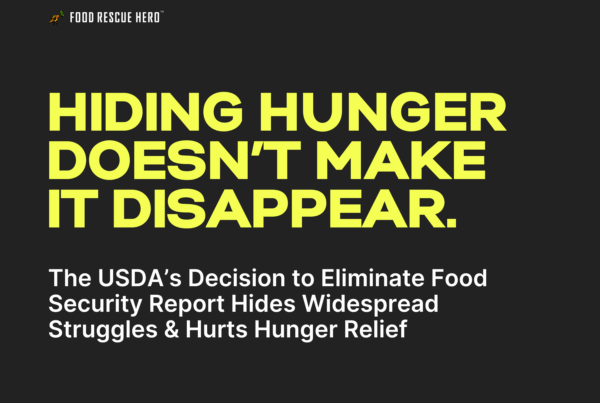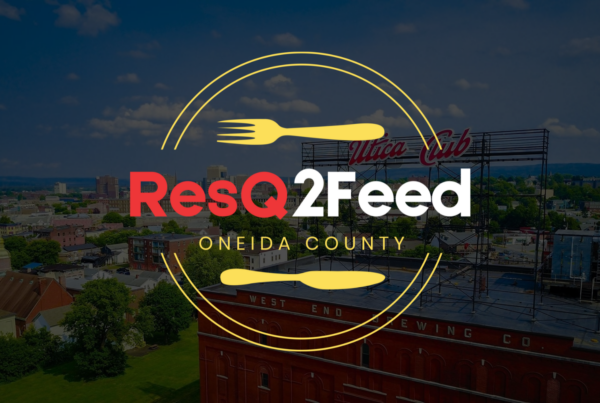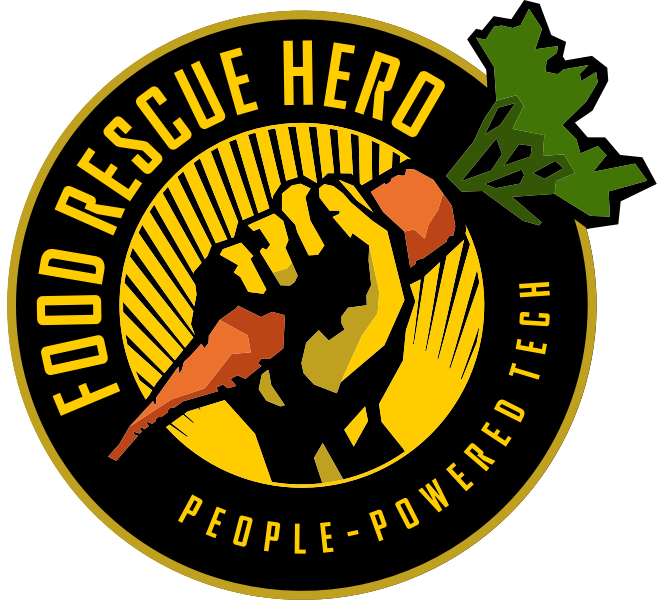How Colleges Can Be Partners in Fighting Food Waste and Hunger
It’s Back-to-School and Hunger Action Month, and for millions of children that means a return to regular meals. Free school breakfast and lunch provides better health and learning outcomes for children whose families are experiencing food insecurity. But for students and young adults leaving a more stable food supply to attend college on their own, back to school can mean a return to hunger. A staggering one in three college students face food insecurity as the high cost of college and living away from home put a strain on both their and/or their family’s wallets.
Much like hunger impacts K-12 students’ ability to learn and focus in class, the impact of food insecurity on college students has a similar snowball effect. Lack of access to adequate food and nutrition lowers cognitive functioning and decreases energy. Lack of adequate nutrition weakens the immune system and can lead to chronic illness and fatigue. Additionally, the stress and anxiety caused by food insecurity contributes to depression and other mental health concerns. In turn, these immediate repercussions result in a decrease in academic performance, reduced attendance in class, lower engagement in campus life, and shame. All of these factors added together can have substantial consequences on a student’s future success.

Food recovery organizations (as well as many other organizations and individuals) often view college campuses as islands within the community – physically present, but not necessarily considered a “real” part of it due to the transitory nature of its residents. Students come into the community for a short time, and even faculty are usually not OF the community itself, and often have careers that take them to any number of campuses over time. But college campuses can and should be multifaceted partners included at the intersection of food waste and hunger solutions.
For many food recovery organizations, they are currently working on campuses to rescue food from campus and take it off campus. But as much as campus dining and other venues offer opportunities to rescue food (and reduce food waste), there is just as much need and opportunity to address hunger on campus.
Revisiting the core mission of food rescue and exploring success stories from other organizations can contribute to a shift in how we think about college campuses within the food recovery space – resulting in giving students greater opportunity for food access if we can radically change how we address hunger on campus. It can also start reducing the stigma and shame associated with food insecurity by bringing conversations about food systems, food waste, and food justice to the forefront.
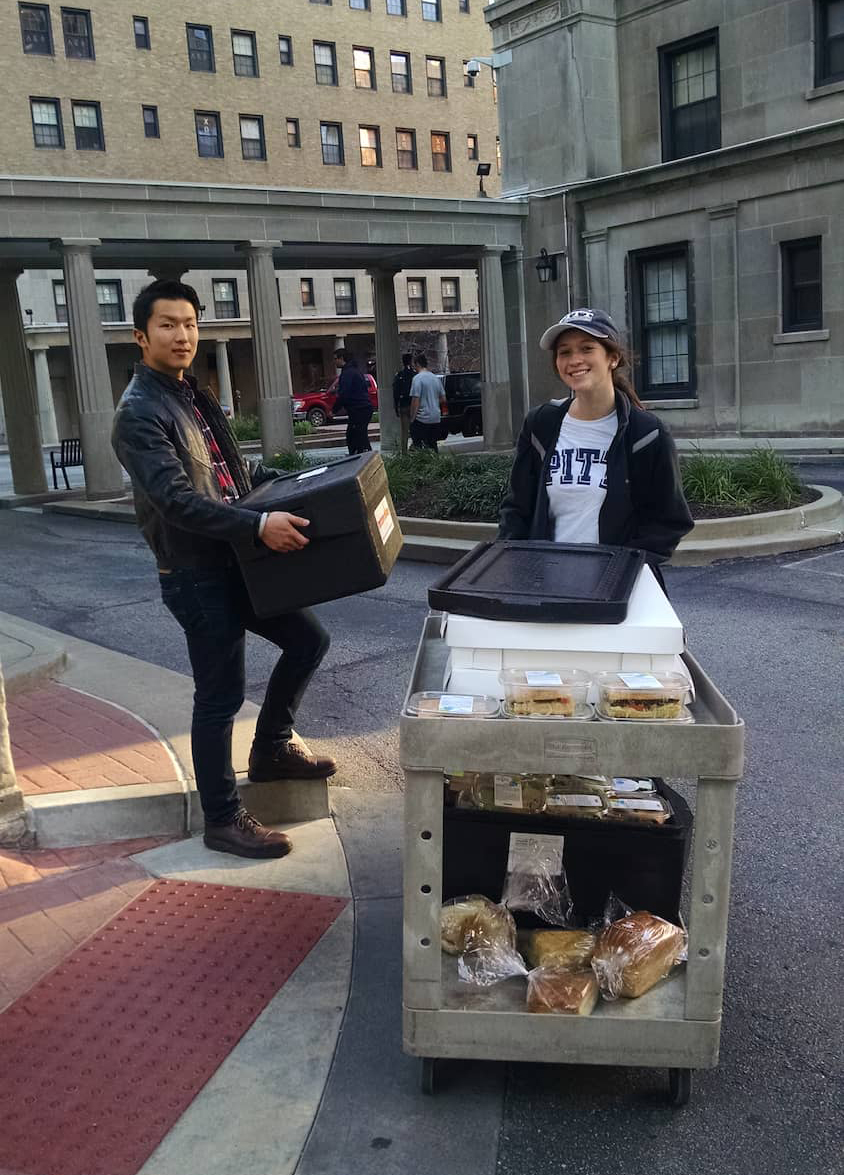
At a forum on college hunger years ago, one campus organizer shared how they facilitated pop-up distributions of rescued perishable food on their college campuses. The distribution policy was “no questions asked,” and was set up in the student center. Their collaboration with food recovery not only tackled food waste and student hunger, but eliminated access barriers and provided a dignified and shame-free way for students to receive food. Since all students were welcome and it was held in the campus student center, there was no shame associated with taking the food.
Another creative approach to addressing this issue was implemented at the University of Pittsburgh by enterprising students. Seeing so much food go to waste after events like club meetings, departmental socials, and campus speakers, they created a Facebook group to post when there was leftover food, where it was, and how long it would be there. Word spread, and quickly they saw students happily converge on the site to get the free food.
While this group succeeded in creating a simple and organic way to ensure food wasn’t going to waste by knowing that college students wouldn’t pass up free food, an unintended benefit was just that – the widely adopted “poor college kid” mindset was a great equalizer. Students experiencing greater food insecurity were not only able to meet their needs with this leftover food, but do so in a way free from shame, as any one of their peers could show up regardless of economic status.
College campuses can often be overlooked when strategizing food recovery efforts due to the transitional nature of the population. Swipe Out Hunger, Sharing Excess, and Food Recovery Network join Food Rescue Conference 2023 this October to discuss hidden opportunities on your local campuses for reducing food waste, combatting hunger, and potential partnerships for funding, volunteers & more!
Beyond integrating college campuses into the food recovery model for both sources of food and recipients, the operational logistics of redistributing surplus food from campus to community members in need provides students an opportunity to get involved, and breaks down the arbitrary barrier between people who are food insecure and those who are not. Engaging students in the work of food recovery not only creates life-long advocates of food recovery, but has the opportunity to begin to erode the false narrative between those that “do charitable work” and those who “benefit” from it.
Collaboration between campuses and food rescue organizations through innovative programs begin to tackle multiple issues at once – food waste, food access, and food dignity. College campuses are a microcosm of the larger community, and when we approach these relationships from a full circle mindset, we’re able to have the greatest impact possible. Getting students involved, addressing student hunger, and preventing food waste on campuses all should be on our radar as food rescue organizations.
Food dignity is a complex and nuanced concept within food access, but important as it asks us to consider best ways to offer nutrition that is diverse, accessible, culturally appropriate, and still approachable – all while eliminating shameful barriers that make asking for food assistance more difficult.
Join this free webinar “Promoting Food Dignity Within Food Recovery” on September 19 feat. Clancy Harrison, founder of the Food Dignity® Movement, and Victoria Della Rocca, RD, LDN.
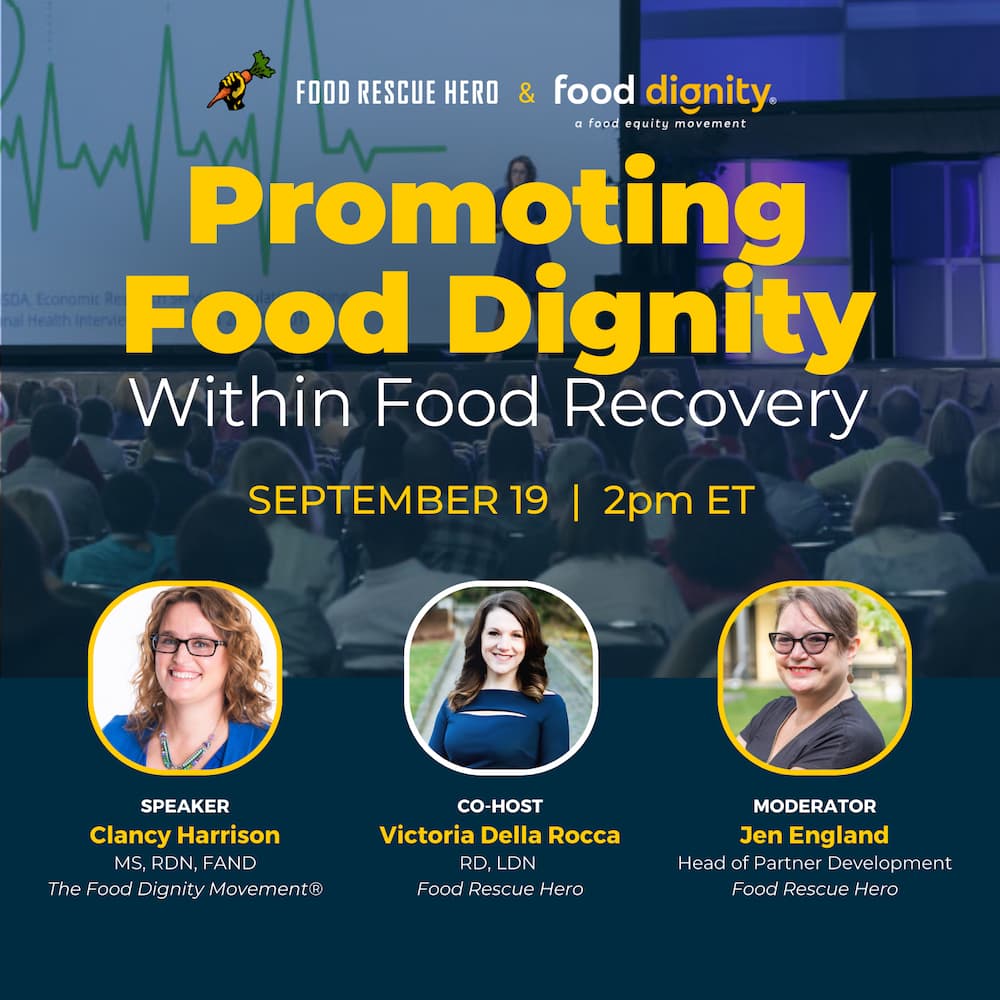
FOOD RESCUE CONFERENCE 2023
If you’re interested in more information about tackling the pressing issues of hunger and food waste on college campuses through meaningful relationships, the Food Rescue Conference this October will include the following sessions:
- “Campus Collaborations: Addressing Hunger, Food Waste & Partnership on Campuses in Our Communities” feat. a panel of Swipe Out Hunger, Sharing Excess, and Food Recovery Network – three organizations working hard to address hunger on college campuses through food rescue
- “How to Start a Food Rescue”
Join us virtually October 12-13 as we bring together thought leaders, activists, and innovators in the field of food rescue to explore fresh ideas and strategies to tackle food waste, as well as new ways to think about how we provide better food access to community members experiencing food insecurity.



